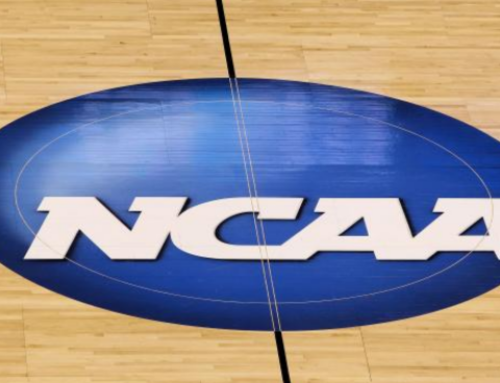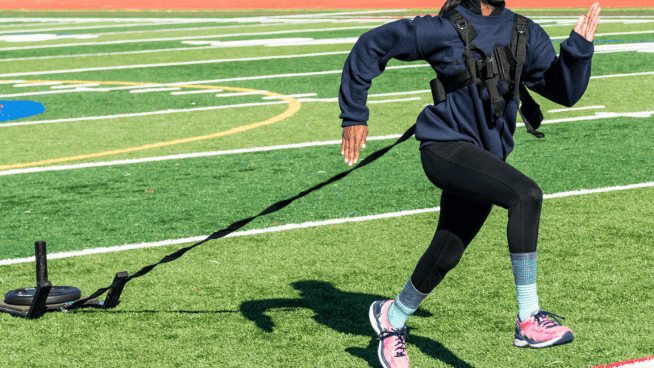A Parent’s Guide to Developing Active, Healthy Kids
Every parent wants their child to be healthy. It is their chief concern at the moment of birth. Parents will always want their children to develop into healthy, strong, and active teens and adults. Even if the parents aren’t into sports, or if the child isn’t, they know that being active is key to a healthy approach to life.
But of course, some parents can care about those things more than others. Some parents think their star 8-year-old is the next Bryce Harper or Lebron James. Some take it way too far, having their child focus on one sport year-round. That is not how to develop an athlete, and certainly not a healthy child. Most professional athletes were late bloomers, not child prodigies.
Sports are great, but they aren’t essential for the healthy development of kids. There are undoubtedly many ways to develop active, healthy, and even athletic kids outside of sports. Now, I am all for encouraging children to try lots of different sports at least once. It is a great way to learn the basics of teamwork, sharing the ball, following a set of rules, and motor control and athletic skill development.
Here are seven steps to developing active, healthy kids, sports or not:
- Have regular checkups
- Be an example
- Give them access
- Give them options
- Instill a strong body
- Talk about it
- Make it fun
1) Have Regular Checkups
This one is the most obvious but needs to be said. Kids should have regular doctor’s checkups. A pediatrician can monitor your child’s development in many ways you probably haven’t thought of. You probably already know this, but regular medical checkups are essential to ensuring healthy development.
2) Be An Example
This step is probably the most important and most neglected by all parents. Part of parenting is not just teaching them with words but also by example. So much of what children learn is from observation. And they observe nobody more than you. The observational learning section of their brain is always on, taking notes. They are very aware of how you spend your time and what you value. Making healthy choices through diet and exercise is a big part of that. If it is important to you, it will be important to them.
3) Give Them Access
Raising children can create hectic schedules. A big part of that can be after-school activities. It can be difficult juggling their schedule, but children really should be involved in active activities, whether it be sports, the arts, or just playing with their neighborhood friends. Parents need to set aside time and enough funds for their kids to be involved in activities outside of school. Having access to these activities is great for keeping the kids active and for social development. It usually adds doses of humility too, which doesn’t hurt. Among many others they learn, these traits will serve them well in adulthood.
4) Give Them Options
This one piggybacks off of the previous point. Kids not only need access to sports and activities but a wide variety of them. There are more sports than just soccer, basketball, and baseball for kids. The options may be limited when they are very young. Still, kids should be encouraged to try various activities that they may not be familiar with as a parent.
Every two years, I’m always amazed at what sports are actually out there. Now, if you live in Florida, it may be difficult to support your child’s bobsled dreams. But, within reason, children should have access to a wide variety of options. Yes, your kid could become the Michael Jordan of kayaking. You won’t know until they are allowed to try.
5) Instill A Strong Body
As a personal trainer, this one is biased but my favorite. Every child should exercise and learn to develop a strong and coordinated body to carry the rest of their lives. Assuming the child has a healthy body, all children should learn to properly squat, lunge, hop, skip, climb, crawl, throw, hide and play tag. They should also learn the basics of sports such as dribbling a basketball, catching a baseball, swing a bat. They don’t need to become all-stars, but just learning these basics is crucial for a strong, coordinated, and overall healthy body.
6) Talk About It
Don’t just send them to basketball camp. Talk about it. Children need open communication about what’s going on in their lives. It’s incredibly helpful for them to know that you care about what they’re doing and learning. Learn what they like and don’t like in their activities. Learn about friends they’ve made or teammates that are not so friendly. Being genuinely interested in your child’s activities will further instill active habits and deepen the bond with your child.
One more thing that falls in this: show up. Of course, you probably can’t make it to every game, but be there when you can. Talking about it AND actually watching it and cheering your child on goes a long way for them. Your presence matters.
7) Make It Fun
Don’t ever lose sight that they are kids. Kids play sports and get involved in activities for the fun of it. Unfortunately, it is getting harder and harder to see the fun in youth sports these days. Travel teams, winter ball, weekend tournaments, and making the school team can all put immense pressure on the athletes and parents themselves. If the competition gets too out of hand, sometimes the best thing to do is walk away. Once the fun stops, the development usually does too.
When I was 12, I made my Little League All-Star team in Louisville, Ky. We were a pretty good team and had dreams of playing in the Little League World Series. That dream was immediately crushed when we lost our first game 12-0 to another local team. We were in shock by how good this team was. That team went on to win the Little League World Series in 2002, beating Japan 1-0.
As you can imagine, that entire roster of players became overnight celebrities in my hometown. But you know how many of them went on to play pro ball or college? One. Guess how many went on to play high school ball? ONE. Within three years of beating the entire world, the best team in the country, all but one had quit. The city expected half those boys to play in the big leagues. Only one didn’t quit before high school.
In the months that followed, people began to hear stories of how the team practiced two, three times a day for several hours at a time. Ten, even twelve-hour practices weren’t unheard of. Those kids became the best in the world, but they were driven into the ground. Shortly after winning the highest trophy in youth sports, almost all of them quit. Hopes and dreams of scholarships and lucrative contracts were never realized.
Take a lesson from the world champs. Winning isn’t everything. Sports and their other activities have to remain fun for kids to foster healthy and active bodies that will serve them well for the rest of their lives.
To Conclude
This is by no means an exhaustive list, but it covers a very strong foundation for healthy development for kids. Remember things like setting an example, encouraging them, talking to them, showing up for them, and always making it fun!
RECOMMENDED FOR YOU
MOST POPULAR
A Parent’s Guide to Developing Active, Healthy Kids
Every parent wants their child to be healthy. It is their chief concern at the moment of birth. Parents will always want their children to develop into healthy, strong, and active teens and adults. Even if the parents aren’t into sports, or if the child isn’t, they know that being active is key to a healthy approach to life.
But of course, some parents can care about those things more than others. Some parents think their star 8-year-old is the next Bryce Harper or Lebron James. Some take it way too far, having their child focus on one sport year-round. That is not how to develop an athlete, and certainly not a healthy child. Most professional athletes were late bloomers, not child prodigies.
Sports are great, but they aren’t essential for the healthy development of kids. There are undoubtedly many ways to develop active, healthy, and even athletic kids outside of sports. Now, I am all for encouraging children to try lots of different sports at least once. It is a great way to learn the basics of teamwork, sharing the ball, following a set of rules, and motor control and athletic skill development.
Here are seven steps to developing active, healthy kids, sports or not:
- Have regular checkups
- Be an example
- Give them access
- Give them options
- Instill a strong body
- Talk about it
- Make it fun
1) Have Regular Checkups
This one is the most obvious but needs to be said. Kids should have regular doctor’s checkups. A pediatrician can monitor your child’s development in many ways you probably haven’t thought of. You probably already know this, but regular medical checkups are essential to ensuring healthy development.
2) Be An Example
This step is probably the most important and most neglected by all parents. Part of parenting is not just teaching them with words but also by example. So much of what children learn is from observation. And they observe nobody more than you. The observational learning section of their brain is always on, taking notes. They are very aware of how you spend your time and what you value. Making healthy choices through diet and exercise is a big part of that. If it is important to you, it will be important to them.
3) Give Them Access
Raising children can create hectic schedules. A big part of that can be after-school activities. It can be difficult juggling their schedule, but children really should be involved in active activities, whether it be sports, the arts, or just playing with their neighborhood friends. Parents need to set aside time and enough funds for their kids to be involved in activities outside of school. Having access to these activities is great for keeping the kids active and for social development. It usually adds doses of humility too, which doesn’t hurt. Among many others they learn, these traits will serve them well in adulthood.
4) Give Them Options
This one piggybacks off of the previous point. Kids not only need access to sports and activities but a wide variety of them. There are more sports than just soccer, basketball, and baseball for kids. The options may be limited when they are very young. Still, kids should be encouraged to try various activities that they may not be familiar with as a parent.
Every two years, I’m always amazed at what sports are actually out there. Now, if you live in Florida, it may be difficult to support your child’s bobsled dreams. But, within reason, children should have access to a wide variety of options. Yes, your kid could become the Michael Jordan of kayaking. You won’t know until they are allowed to try.
5) Instill A Strong Body
As a personal trainer, this one is biased but my favorite. Every child should exercise and learn to develop a strong and coordinated body to carry the rest of their lives. Assuming the child has a healthy body, all children should learn to properly squat, lunge, hop, skip, climb, crawl, throw, hide and play tag. They should also learn the basics of sports such as dribbling a basketball, catching a baseball, swing a bat. They don’t need to become all-stars, but just learning these basics is crucial for a strong, coordinated, and overall healthy body.
6) Talk About It
Don’t just send them to basketball camp. Talk about it. Children need open communication about what’s going on in their lives. It’s incredibly helpful for them to know that you care about what they’re doing and learning. Learn what they like and don’t like in their activities. Learn about friends they’ve made or teammates that are not so friendly. Being genuinely interested in your child’s activities will further instill active habits and deepen the bond with your child.
One more thing that falls in this: show up. Of course, you probably can’t make it to every game, but be there when you can. Talking about it AND actually watching it and cheering your child on goes a long way for them. Your presence matters.
7) Make It Fun
Don’t ever lose sight that they are kids. Kids play sports and get involved in activities for the fun of it. Unfortunately, it is getting harder and harder to see the fun in youth sports these days. Travel teams, winter ball, weekend tournaments, and making the school team can all put immense pressure on the athletes and parents themselves. If the competition gets too out of hand, sometimes the best thing to do is walk away. Once the fun stops, the development usually does too.
When I was 12, I made my Little League All-Star team in Louisville, Ky. We were a pretty good team and had dreams of playing in the Little League World Series. That dream was immediately crushed when we lost our first game 12-0 to another local team. We were in shock by how good this team was. That team went on to win the Little League World Series in 2002, beating Japan 1-0.
As you can imagine, that entire roster of players became overnight celebrities in my hometown. But you know how many of them went on to play pro ball or college? One. Guess how many went on to play high school ball? ONE. Within three years of beating the entire world, the best team in the country, all but one had quit. The city expected half those boys to play in the big leagues. Only one didn’t quit before high school.
In the months that followed, people began to hear stories of how the team practiced two, three times a day for several hours at a time. Ten, even twelve-hour practices weren’t unheard of. Those kids became the best in the world, but they were driven into the ground. Shortly after winning the highest trophy in youth sports, almost all of them quit. Hopes and dreams of scholarships and lucrative contracts were never realized.
Take a lesson from the world champs. Winning isn’t everything. Sports and their other activities have to remain fun for kids to foster healthy and active bodies that will serve them well for the rest of their lives.
To Conclude
This is by no means an exhaustive list, but it covers a very strong foundation for healthy development for kids. Remember things like setting an example, encouraging them, talking to them, showing up for them, and always making it fun!










